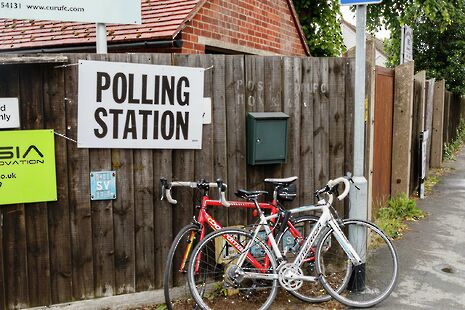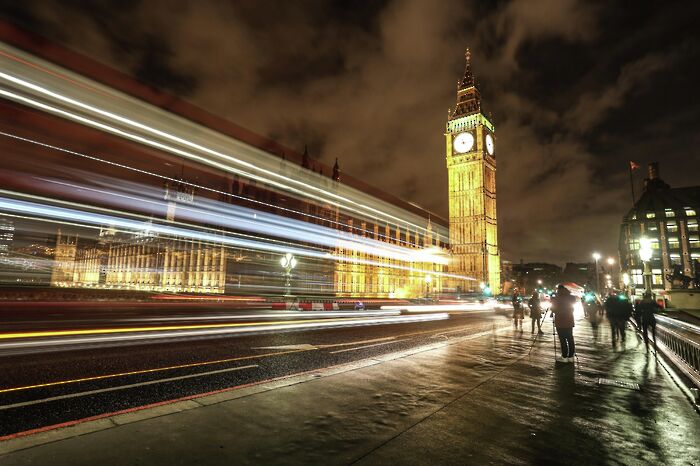Think twice before deciding where to cast your vote. Many of us have two options.
You may know which party you’ll be casting your vote for, but Ari Doomasia urges we consider where this vote should go

It is very likely that you have been reminded to register to vote before 26th November. It is less likely that you have been told that you can register not once, but twice. Students may choose to vote in their home or university constituency based on where is more convenient to go and physically vote, or even opt to send a postal vote to either of their constituencies. The freedom to make this choice is a phenomenon that is unique to students, and the few with two home addresses.
Many would argue that this is a great injustice, and that the ability to vote tactically undermines the entire process. Constituency lines are drawn on the basis of population, but if students can move between semi-porous constituency boundaries, these calculations become redundant. Members of the local communities may just feel the value of their own vote diminish.
However, these anxieties are not widely felt in the UK, because the reality looks very different. Students may have more control over the impact of their vote than the vast majority of citizens, but the opportunity is hardly embraced.
Students can move between semi-porous constituency boundaries
Since students at Oxbridge finish term earlier than many other UK universities, most Cambridge students have the luxury of certainty about their location on 12th December – whether this be domestic students in their home constituency, an international student in their country of residence, or students who choose to stay on in Cambridge once term has ended. A recent analysis by David Kernohan shows that the majority of students from other universities will be breaking up that week itself. He even suggests that the date was the Conservative government’s “tactical masterstroke” to thwart student votes, in a bid to weaken support for the Labour Party.
Regardless of whether or not Kernohan’s verdict is true, it does highlight that the disenfranchisement of young people is a definite political reality, known well by politicians, and not enough by young voters. The prevailing perception is that voting is already a low priority for students, and with subtle systematic changes, can be made even lower. In an extreme example of this rhetoric, Rod Liddle went as far as to encourage parents to take an active role in disenfranchising their own children, in an article unapologetically titled: If you do one thing this election, stop your kids from voting.
For many students across the UK, the upcoming General Election will be the first in which they are eligible to vote. Even for those who did cast their vote in the last two general elections of the past four years, this may be the most significant. The demand for a stable government has reached new heights, and political pressure could not be more fraught – it is doubtful that the UK could handle another General Election in the next few years. Since these years will see some of the most formative policy change in the nation’s modern history, and in our lifetimes, this election is one of the rare opportunities we have to decide who exactly drives this change.
Since 2015, the Cambridge seat has been held by the Labour MP Daniel Zeichner, and he was re-elected in 2017. Zeichner’s 2015 win was by a mere 600 votes over his Liberal Democrat opponent. His vote increase surged by almost 16% in 2017, when support for the Labour Party was at a periodic high. It is certainly not a safe seat.
For the contested seat in Cambridge, now five parties have named their candidate. The competition looks to be most fierce between the incumbent, Zeichner, and Rod Cantrill, the new Liberal Democrat candidate. Recent polling puts the Liberal Democrats ahead by 39% as of 29th October, and registered a substantial decrease in support for Labour who have slipped to 30%. Recent history has shown polling to be, at best, unreliable, and at worst it creates a false sense of security, or needless panic. Nevertheless, what should be taken from these ‘predictions’ is just how unpredictable the upcoming General Election is panning out to be. And where there is unpredictability, there is opportunity.
With just a month until election day, there is little guarantee over which candidate will stir up more support. This tool may help to assess where your vote will be most effective. However, since it only uses data from the 2017 election, it is also well worth looking into the results of both your home and university constituency, and comparing electoral trends over recent years.
Students can register with both addresses, whether it be for the polling station at home or through the post in Cambridge. Any student who votes exercises both their basic democratic right and their freedom to decide between two possibilities.
Democracy may mean that we all get one vote, but students are in a unique position to choose where it goes.
Register to vote by the 26th November at https://www.gov.uk/register-to-vote.
 News / Uni Scout and Guide Club affirms trans inclusion 12 December 2025
News / Uni Scout and Guide Club affirms trans inclusion 12 December 2025 News / Cambridge study finds students learn better with notes than AI13 December 2025
News / Cambridge study finds students learn better with notes than AI13 December 2025 News / Cambridge Vet School gets lifeline year to stay accredited28 November 2025
News / Cambridge Vet School gets lifeline year to stay accredited28 November 2025 Science / Did your ex trip on King’s Parade? The science behind the ‘ick’12 December 2025
Science / Did your ex trip on King’s Parade? The science behind the ‘ick’12 December 2025 News / Pembroke to convert listed office building into accom9 December 2025
News / Pembroke to convert listed office building into accom9 December 2025









